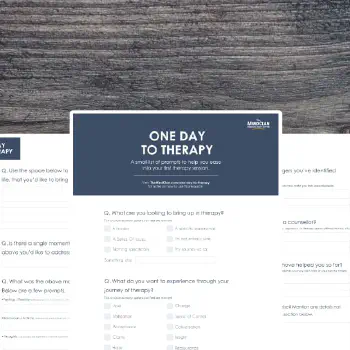As the stigma around finding support for your mental health reduces, there is a valid confusion about the professions in the mental health field. Who are the professionals in this space? Who should you be reaching out to? Let’s find out.
Just a note before we begin: The mental health space is maturing and changing at a rapid pace, to the extent that we may not be entirely up to date with the information we hold about various mental health practitioners/workers. Please take the information below as thought starters. This can help you identify and speak to the professional directly about the differences between their line of work from the others in the space.
1. Psychotherapists:
A psychotherapist is an umbrella term that includes all psychology professionals. A psychotherapist is a name that is given to professionals who provide therapy for clients.
Counselling Psychologists (Counsellors/Therapists): The most common type of psychotherapists are counselling psychologists. These are professionals who have studied psychology and have experience in helping individuals cope with their mental health problems or concerns. They primarily work to provide emotional support to their clients. Apart from the licensing requirements that may differ from country to country, they mostly have at least a masters in psychology (with any specialization), and have undergone training in various forms/practices of therapy through other institutions post graduation.
Clinical Psychologists: Clinical psychologists are either research focused (where they work in lab or academic setups) and/or therapy focused (where they undergo training to offer therapy in clinical or private setups). In both cases, they’re primarily trained to administer psychological tests with their clients, if the client (or their counselling psychologist /psychiatrist) requested it. Though the industry of mental health testing is currently being debated, it’s known to help clients receive a ‘diagnosis’ , which may help them make sense of their distress or experience. If the clinical psychologist does not offer therapy, they often work alongside psychiatrists and other psychologists to solely offer testing to clients. An example of a test you must have heard that a clinical psychologist administers is an intelligence quotient (IQ) test.
All professions under psychotherapy are neither trained, nor legally not allowed to prescribe medication to their clients. In cases where medication might be required, the professionals are trained to identify this requirement and also recommend you to a psychiatrist accordingly.
2. Psychiatrists:
Psychiatrists are professionals in the mental health space who specialize in helping clients cope with their mental health concerns by prescribing medication. They are the equivalent of medical doctors but in the mental health space. In almost every country, psychiatrists are required to have a legal valid license (and the qualifications associated with it) to practice and offer their services. They may either work in hospitals, counselling centers, clinics or privately.
In many cases, you find counsellors, clinical psychologists and psychiatrists working hand in hand to help a person’s mental health concerns.
3. Social Workers:
In India, social workers work with individuals, families and communities, to help them cope with experiences related to oppression and marginalization. These may include poverty, unemployment, discrimination, harassment, child welfare, mental health, access to education and health services and other sectors. Social work profession addresses the barriers, inequities and injustices that exist in society. They work with, on behalf of, or in the interests of people. Their work focuses on change, problem solving, responding to crises and emergencies as well as to everyday personal and social problems. They often act as last mile connectors of any social welfare services. (Source)
4. Life Coaches (Corporate Coaches):
Life coaches are neither therapists nor workers in the mental health sector.
Think of life coaches as (like the name specifies) a coach. The way a coach guides teams in sports, life coaches are individuals (sometimes trained/licensed under private institutes) who work in a similar way to coach or guide one’s personal or professional life. They may work with you individually or collectively with your team at the workplace. You can also think of them as mentors, who would motivate you to achieve certain goals, but they may or may not be trained in counselling practices.
So, who should you be reaching out to?
In short, therapists or counsellors (Counselling Psychologists) are the first professionals you should be reaching out to.
They are trained to offer you the emotional support you need and work with you to discover and unpack the stories behind your mental health concerns, while also respecting your choice, agency and rights when it comes to clinical testing or psychiatric interventions. They will also help you with any misconceptions or questions you may have about the role of therapy and other professionals in this space.
How do I find them?
If you live in India, we curate for mental health practitioners (therapists) who practice privately and list them on our platform.
In closing:
While it’s easier to know how life coaches and social workers differ professionals in the mental health space, it’s important for us to also note that things aren’t always very clear. You might see a clinical psychologist only offer the services of therapy with no testing, you may see a psychiatrist only offer the services of counselling without medication, and so on. It’s important for you to have a conversation with your professional to know and understand their line of work directly from them.
You can also view our free resource One Day To Therapy, which contains a helpful list of prompts that you can reflect on before your first ever therapy session.




















